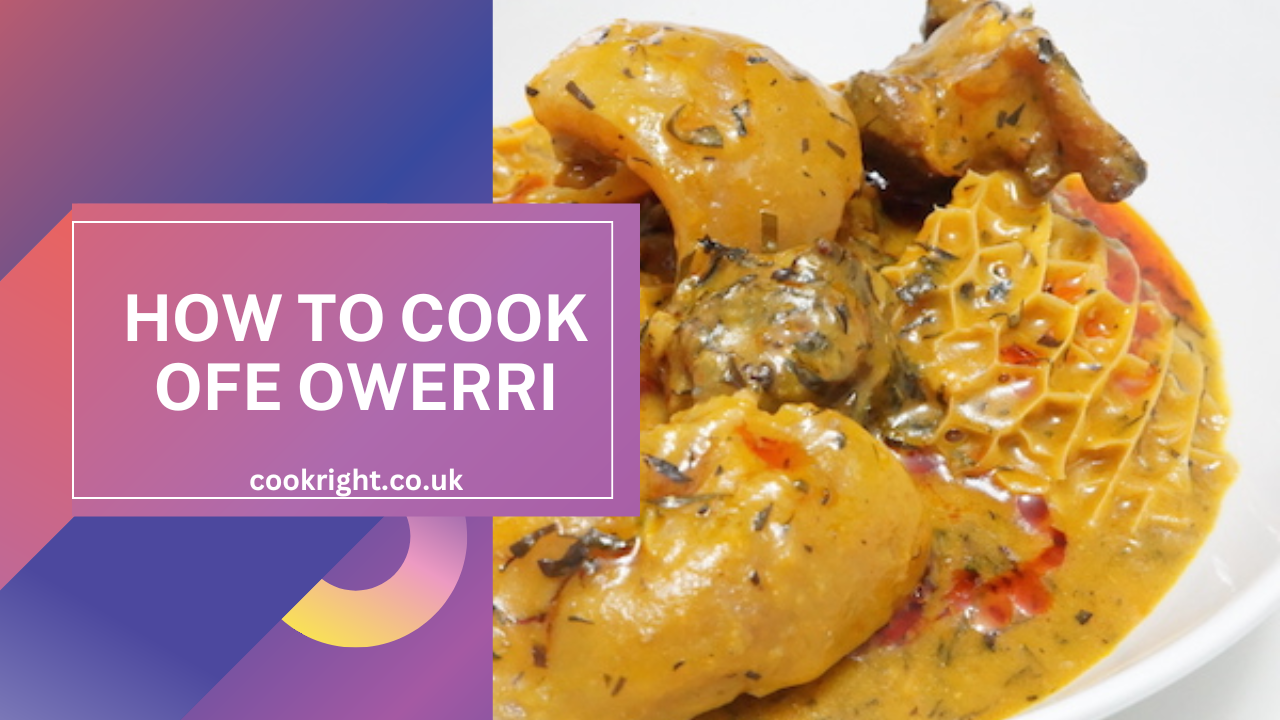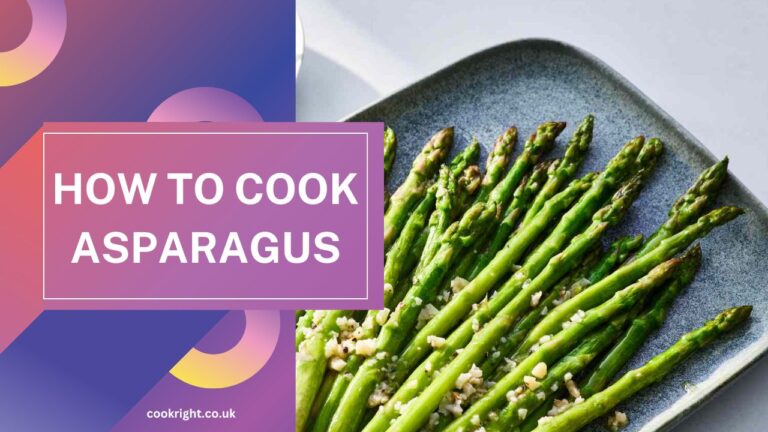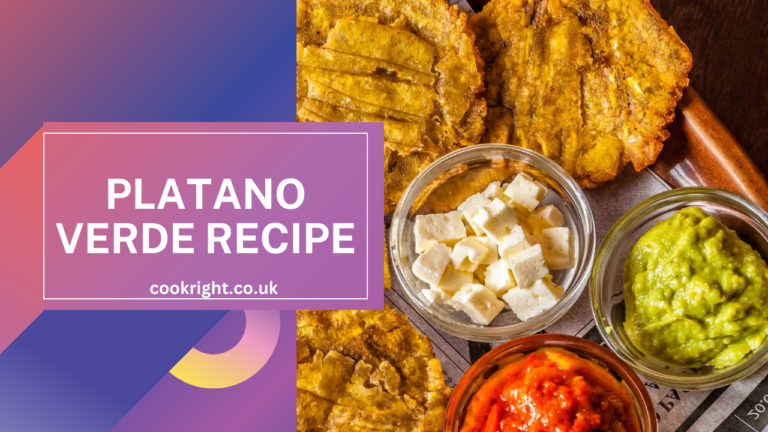Ofe Owerri is a highly cherished traditional soup from the Igbo tribe of Nigeria, specifically originating from Owerri in Imo State. This soup is renowned for its rich and flavorful taste, packed with a variety of indigenous vegetables, proteins, and condiments that make it a favorite dish for special occasions. Ofe Owerri isn’t just a meal; it’s a cultural experience. In this detailed guide, we’ll walk you through the steps to prepare this delightful soup, ensuring you capture the essence of its authentic taste.
Ingredients Needed
To prepare a pot of Ofe Owerri, you’ll need the following ingredients:
- Assorted meats (beef, goat meat, shaki (tripe), cow skin (kpomo))
- Dry fish and stockfish
- Snails (optional but traditionally used)
- Periwinkles (optional)
- Ground crayfish (3 tablespoons)
- Ogiri Igbo (fermented castor seed paste) – 1 tablespoon
- Uziza leaves (a handful)
- Ugu leaves (fluted pumpkin leaves) – 2 handfuls
- Ukazi leaves (1 handful)
- Cocoyam (as a thickener) – about 10 small-sized pieces
- Palm oil (about 1 cooking spoon)
- Seasoning cubes (Maggi or Knorr) – 3 cubes
- Salt to taste
- Pepper (scotch bonnet or ground pepper) – to taste
- Water (as needed)
Step-by-Step Cooking Instructions
Step 1: Preparing the Vegetables
- Wash and shred the vegetables: Start by washing the ugu, uziza, and ukazi leaves thoroughly to remove any sand or dirt. After washing, shred the ugu and uziza leaves into medium-sized pieces. For ukazi leaves, slice them into tiny, thin strips as they are tougher and need to be finely cut.
- Prepare the cocoyam: Peel the cocoyam, wash, and place them in a pot of water. Boil until they are soft and tender. Once cooked, pound the cocoyam in a mortar or use a food processor to create a smooth paste. This paste will act as the thickener for the soup.
Step 2: Preparing the Proteins
- Clean and season the assorted meats: Rinse your assorted meats thoroughly. In a large pot, season the meats with salt, seasoning cubes, and a little pepper. Add water and cook the meats on medium heat until tender. Ensure that the meats are well-seasoned and flavorful, as this will form the base of your soup’s taste.
- Add the stockfish and dry fish: Soak the stockfish and dry fish in hot water to soften them. Once softened, add them to the pot of boiling meats. Ensure you remove any bones from the dry fish to avoid unpleasant surprises while eating.
- Prepare the snails: If you’re using snails, clean them thoroughly by removing the slime with lime or alum. Add the cleaned snails to the pot of meats and fish.
- Add the periwinkles: This step is optional, but if you’re using periwinkles, wash them thoroughly and add them to the pot.
Step 3: Cooking the Soup
- Introduce the cocoyam paste: Once your proteins are well-cooked, start adding the cocoyam paste in small dollops. Allow it to dissolve into the soup as it cooks. The cocoyam will gradually thicken the soup, so add it bit by bit until you achieve your desired consistency.
- Add palm oil: Pour in the palm oil and stir to combine. The oil will enhance the color and flavor of the soup.
- Incorporate crayfish and ogiri: Add the ground crayfish and ogiri. These two ingredients are crucial as they give Ofe Owerri its distinctive traditional flavor. Stir well to ensure they are evenly distributed in the soup.
- Season to taste: Add more seasoning cubes, salt, and pepper as needed. Taste as you go to avoid over-seasoning.
- Add the vegetables: First, add the uziza leaves and stir. Uziza leaves have a slightly peppery taste, which enhances the flavor of the soup. After about 2 minutes, add the ugu leaves and stir. Finally, add the ukazi leaves last since they are tougher and take longer to soften. Allow the vegetables to cook for about 5 minutes. Ensure you do not overcook the vegetables; they should remain vibrant and slightly crunchy.
Step 4: Finalizing the Soup
- Check the consistency: If the soup is too thick, add a little water to adjust it to your desired consistency. Stir thoroughly to combine all the ingredients.
- Simmer and serve: Lower the heat and allow the soup to simmer for another 3-5 minutes. This will ensure all the flavors meld together perfectly.
- Serve hot: Ofe Owerri is best enjoyed with pounded yam, fufu, or any other swallow of your choice.
Tips for Perfecting Ofe Owerri
- Fresh Ingredients: Always use fresh vegetables and quality meats. Fresh ingredients contribute significantly to the flavor of the soup.
- Moderation with Vegetables: Be mindful of the quantity of vegetables you add to the soup. Ofe Owerri is traditionally thick and rich, not overly leafy.
- Balance the Flavors: Ogiri has a strong, pungent flavor that defines Ofe Owerri. Use it moderately to avoid overpowering the soup. If you’re not used to it, you might want to start with a smaller amount and adjust as necessary.
- Cook on Low Heat: After adding the vegetables, reduce the heat. High heat can cause the vegetables to lose their vibrant color and fresh taste.
Conclusion
Ofe Owerri is not just a dish; it’s a celebration of Igbo heritage and culinary excellence. Whether you’re making it for a special occasion or as a treat for your family, this rich and hearty soup is sure to be a hit. With its combination of assorted meats, snails, and fresh vegetables, Ofe Owerri is the ultimate comfort food that brings warmth and joy to the table.
So, roll up your sleeves, gather your ingredients, and get ready to cook a pot of delicious Ofe Owerri that will have everyone asking for seconds! Enjoy your cooking adventure and savor the taste of this traditional Nigerian soup.








